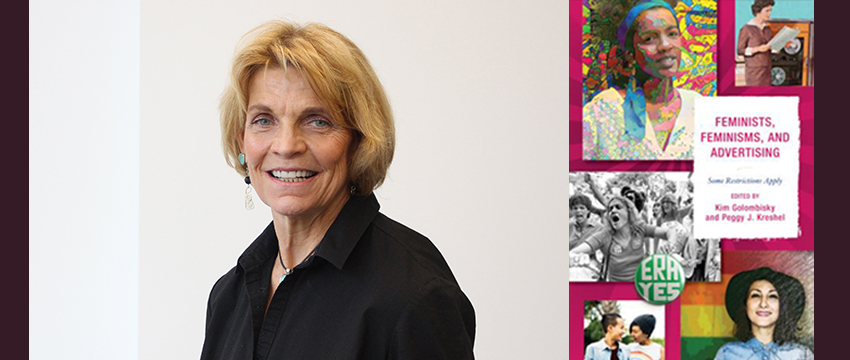Grady professor co-edits book about the intersection of feminism and the advertising industry

Grady professor co-edits book about the intersection of feminism and the advertising industry
In the past year, events like the Women’s March in Washington and the beginning of the #MeToo movement have dominated the news media and started a national conversation. Women everywhere are standing up and speaking out for what they believe in. In her new book, “Feminists, Feminisms, and Advertising: Some Restrictions Apply,” Peggy Kreshel, an associate professor of advertising at Grady College, explores the role of feminists and feminism in the advertising industry. Kreshel co-edited the book with Kim Golombisky, associate professor at the University of South Florida.
Kreshel wanted to expand upon the typical focus of advertising—selling a product or service— and instead chose to focus her research on history, professionalization, ethics and gender issues in the advertising world.
“I wanted to do more than sell products,” Kreshel explained. “I wanted to have a social focus.”
This social focus is seen in “Feminists, Feminisms, and Advertising: Some Restrictions Apply” as it explores the history of the feminist movement and the advertising industry in the United States. Before starting the book process, both Kreshel and Golombisky noticed that while journalism and public relations had well-developed feminists, academic literature advertising did not.
As a result, Kreshel and Golombisky sent out a call for proposals to seek out feminist scholars doing research in advertising. At the end of a lengthy process Kreshel and Golombisky had compiled a series of essays offering explicitly feminist views on the advertising business as practice and career.
Feminist researchers have largely focused on advertising content; by contrast, the focus of this book is on the advertising business: history, workplace culture, individuals creating ads, and the audiences interpreting those ads. Through this book Kreshel, Golombisky and the contributors reinvigorate the conversation on diversity in advertising, examine the role advertising plays in maintaining patterns of oppression and inequality, and explore how we might intervene, perhaps even use advertising and advertising practices, to challenge those injustices. The book brings together feminist scholars from across the United States, taking feminist perspectives and using a wide range of research methods.
“I hope that we’ve created a community so that none of these authors feel alone, that they recognize that they are a community like any others, and that they have people they can talk to,” Kreshel reflected. “I want them to put down the book and say wow, I’ve never thought about feminism and advertising in this particular way.”